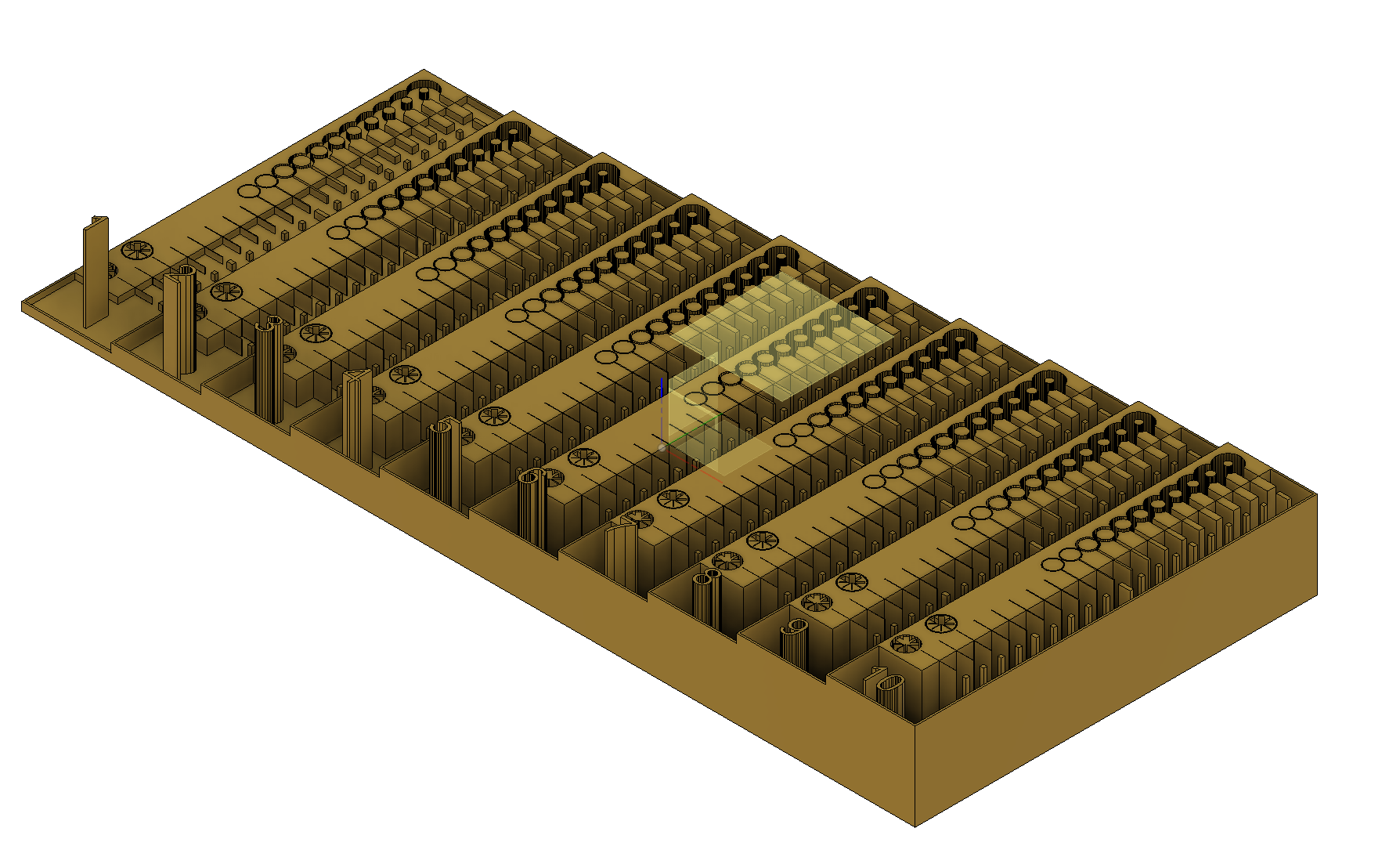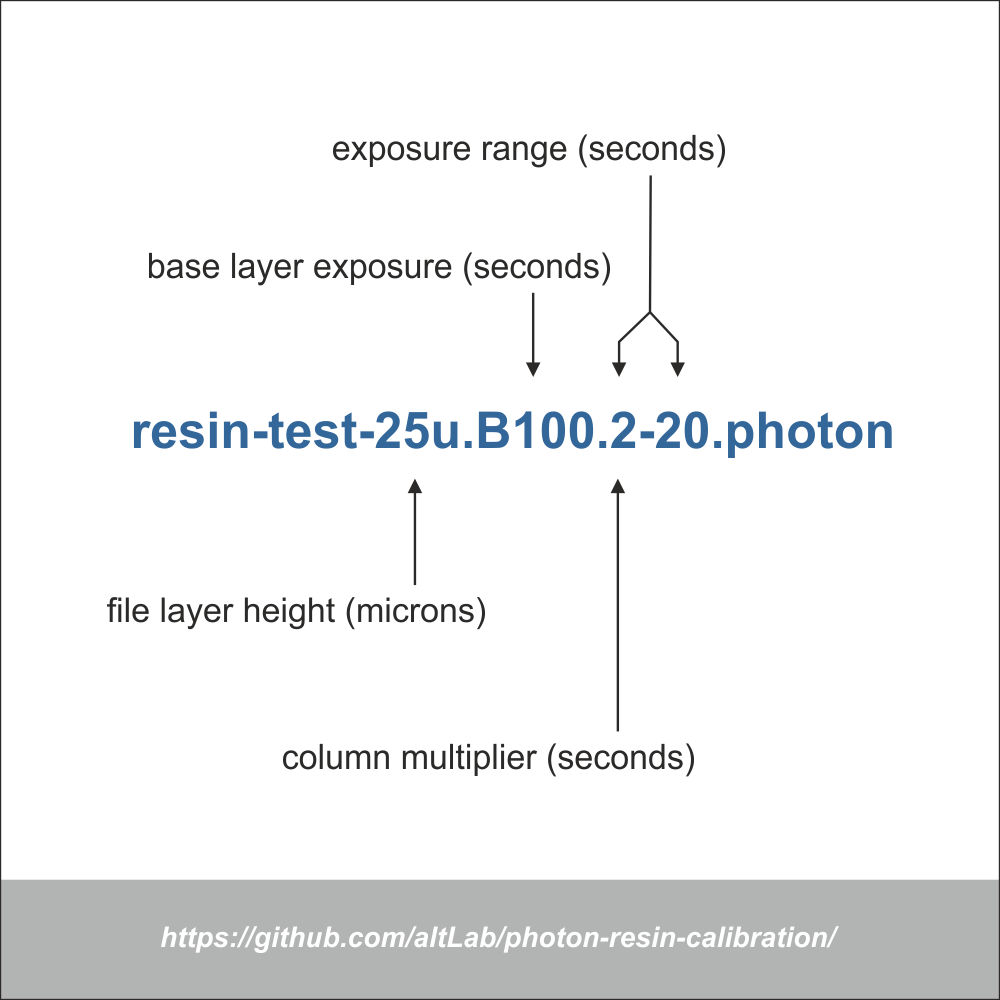is a method that allows you to quickly find the best exposure settings for any resin or UV film.
Due to its ease of use and fast results, it has become the de-facto test method used by thousands of owners for their Anycubic Photon (original) 3D Printer, and for other CBDtech based printers such as the Epax X1 and Elegoo Mars.
This exposure range (latitude) tester removes most of the guesswork on layer time exposure by using multiple consecutive exposures to simulate different unique layer times for each test column.
And it comes with the added bonus of learning all in one go, the minimum viable width for positive and negative space details of each column exposure time.
How to use - by InventorSquare
How to use - Photonsters Youtube by Jay Sterling
- Start from top and locate first well formed circle column
- Move to bottom last visible Circle
- Move right untill the circle starts to clog
- Backtrack one colum
- That's your sweetspot
Below is an example of validation models done from a 2-20s range card, revealing a usable range of 8-18s exposure time.
https://www.youtube.com/watch?v=0fksIkSthl8
The origins of this test come from a silkcreen and darkroom tuning technique called step wedge test, read about it > here <
https://www.youtube.com/watch?v=s_NIeiNoKi0&t=73s
Kudos to @Reonarudo for finding what makes .photon files tick. Check his project to convert images into .photon files (here)[https://github.com/Reonarudo/pcb2photon]
Kudos to Toby1kanobi in the anycubic owners forum for translating and cleaning up the gcode file used to switch modes in the printer
 You can find the source CAD Model that was used for this hack test here
You can find the source CAD Model that was used for this hack test here



